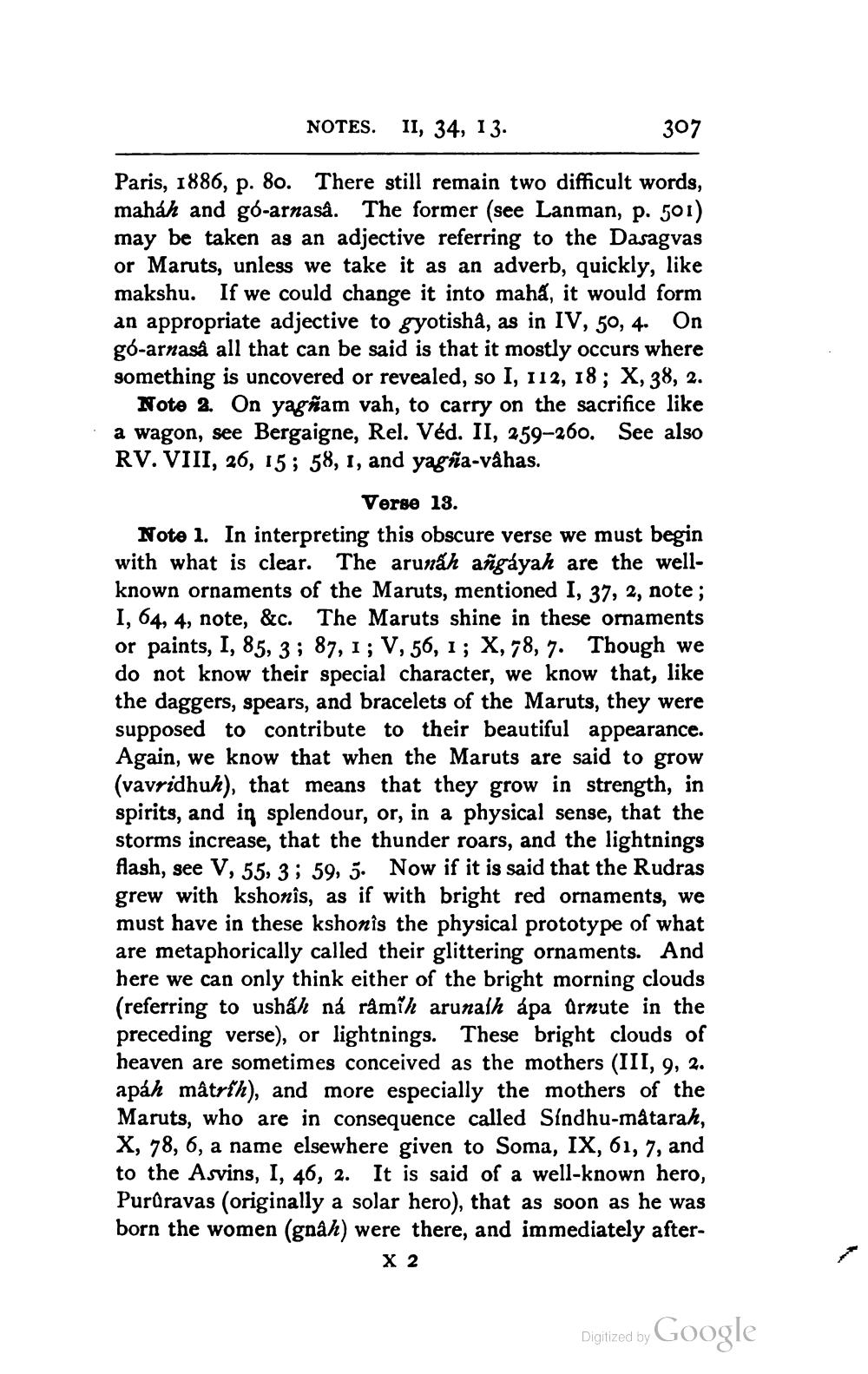________________
NOTES. II, 34, 13.
307
Paris, 1886, p. 80. There still remain two difficult words, maháh and go-arnasa. The former (see Lanman, p. 501) may be taken as an adjective referring to the Dasagvas or Maruts, unless we take it as an adverb, quickly, like makshu. If we could change it into maha, it would form an appropriate adjective to gyotisha, as in IV, 50, 4. On gó-arnasà all that can be said is that it mostly occurs where something is uncovered or revealed, so I, 112, 18; X, 38, 2.
Note 2. On yagñam vah, to carry on the sacrifice like a wagon, see Bergaigne, Rel. Véd. II, 259–260. See also RV. VIII, 26, 15; 58, 1, and yagña-vâhas.
Verse 13. Note 1. In interpreting this obscure verse we must begin with what is clear. The arunah añgáyah are the wellknown ornaments of the Maruts, mentioned I, 37, 2, note; I, 64, 4, note, &c. The Maruts shine in these ornaments or paints, I, 85, 3 ; 87, 1 ; V, 56, 1; X, 78, 7. Though we do not know their special character, we know that, like the daggers, spears, and bracelets of the Maruts, they were supposed to contribute to their beautiful appearance. Again, we know that when the Maruts are said to grow (vavridhur), that means that they grow in strength, in spirits, and in splendour, or, in a physical sense, that the storms increase, that the thunder roars, and the lightnings flash. see V, 55, 3; 59, 5. Now if it is said that the Rudra grew with kshonis, as if with bright red ornaments, we must have in these kshonis the physical prototype of what are metaphorically called their glittering ornaments. And here we can only think either of the bright morning clouds (referring to ushấh na ramih arunalh ápa úrnute in the preceding verse), or lightnings. These bright clouds of heaven are sometimes conceived as the mothers (III, 9, 2. apáh mâtrih), and more especially the mothers of the Maruts, who are in consequence called Sindhu-måtarah, X, 78, 6, a name elsewhere given to Soma, IX, 61, 7, and to the Asvins, I, 46, 2. It is said of a well-known hero, Purúravas (originally a solar hero), that as soon as he was born the women (gnah) were there, and immediately after
X 2
Digitized by
Digitized by Google




